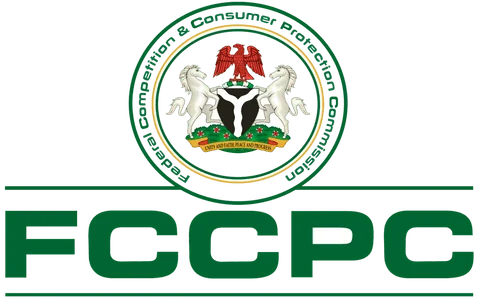Nigeria’s consumer protection agency has revealed that banks and fintech firms remain the biggest sources of customer grievances in the country, with over 4,600 complaints lodged against them between March and August 2025.
The Federal Competition and Consumer Protection Commission disclosed this in a sectoral complaints report released on Thursday. The commission stated that it recovered more than N10bn ($6.7m) for affected consumers during the five-month period.
According to the report, the banking sector accounted for 3,173 complaints, making it the highest single source of disputes.
This was followed by the fast-moving consumer goods sector, which attracted 1,543 complaints, fintech companies with 1,442 complaints, and the electricity sector with 458 complaints. Other areas of concern included e-commerce, telecommunications, aviation, and logistics.
The nature of grievances cut across multiple issues such as unfair charges, service failures, unauthorised deductions, deceptive marketing practices, product defects, poor disclosure of contractual terms, and failure of service providers to resolve issues within acceptable timelines.
The FCCPC explained that it successfully resolved 9,091 complaints within the period, resulting in financial recoveries exceeding N10bn for consumers who had suffered losses.
“These numbers are not just statistics; they tell the story of consumer frustration and the daily challenges Nigerians face in accessing essential services,” said Tunji Bello, Executive Vice Chairman and Chief Executive Officer of the FCCPC, in a statement posted on X (formerly Twitter). “The commission is determined to hold businesses accountable, ensure compliance with the Federal Competition and Consumer Protection Act, and promote fair market practices that safeguard the welfare of all consumers.”
The commission noted that the banking sector remains the dominant source of complaints both in terms of volume and financial exposure. The recurring disputes largely involved loan deductions, unexplained account charges, and failed electronic transactions.
The FCCPC said the trend highlighted long-standing weaknesses in customer service and dispute-resolution mechanisms within the sector. It pledged to work closely with the Central Bank of Nigeria to strengthen consumer safeguards and enhance accountability among financial institutions.
Complaints against fintech services ranked third, reflecting Nigeria’s growing exposure to digital finance and investment platforms. The FCCPC reported frequent disputes in digital lending and online investment schemes, with consumers alleging hidden charges, predatory practices, and outright fraud.
The regulator stressed that this underlines the need for tighter collaboration with the CBN to monitor fintech operations and protect consumers from exploitative practices in the fast-expanding digital economy.
The electricity sector was the fourth-largest source of grievances, with 458 reported cases. These were mostly tied to estimated billing, metering disputes, and prolonged power outages.
The FCCPC said the complaints revealed the urgent need for better coordination between the Nigerian Electricity Regulatory Commission, state-level regulators, and electricity distribution companies to address persistent consumer dissatisfaction in the power sector.
E-commerce also featured prominently in the FCCPC’s report, flagged as a growing consumer pain point. Customers frequently reported failed deliveries, delays in refunds, and counterfeit products.
Although average losses per case in e-commerce disputes were relatively smaller than in banking or fintech, the Commission said the high volume of cases signalled broad consumer vulnerability at the retail level.
The FCCPC further noted a high incidence of complaints in digital lending, microfinance, and investment schemes, coinciding with the rollout of its new digital lending regulations. The rules are designed to curb abusive practices, improve transparency, and ensure that operators in the digital finance space comply with fair market standards.
The publication of sector-specific consumer data, according to the FCCPC, aligns with its mandate under Sections 17(a) and 17(j) of the FCCPA 2018, which require the Commission to enforce consumer protection laws and make information on its activities publicly available.
Going forward, the FCCPC said it would intensify monitoring, enforcement, and collaboration with other sector regulators, particularly in financial services and utilities, where patterns of consumer exploitation remain most pronounced.
“The protection of consumer rights is at the heart of our mandate,” the FCCPC stated. “We will continue to ensure that businesses in Nigeria uphold the highest standards of fairness, transparency, and accountability.”
The latest disclosure underscores the central role of consumer protection in Nigeria’s evolving economy, where financial services, digital platforms, utilities, and retail transactions form the backbone of daily life. It also highlights the FCCPC’s growing role as a watchdog for citizens facing systemic challenges across essential service sectors.















